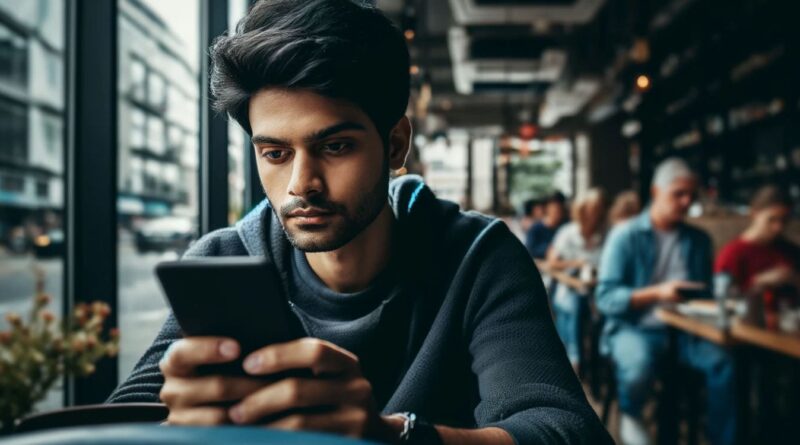People with high public appearance anxiety have high levels of nomophobia, research finds
In a world where smartphones have become essential in everyday life, a recent study published in Archives of Psychiatric Nursing highlights modern anxiety – nomophobia, the fear of being without a mobile phone. A study found that young adults with high levels of anxiety and loneliness are more likely to suffer from nomophobia.
Smartphones offer many possibilities, from easy communication and access to information to entertainment and social networking. However, the widespread use of smartphones has led to the emergence of nomophobia. The researchers wanted to understand the underlying psychological factors that contribute to this anxiety.
Conducted between June and August 2021, the survey includes 687 participants aged 20 to 40 living in Turkey. Participants were selected using convenience sampling, and those with psychiatric conditions were excluded to ensure that the study focused on general psychological factors.
Data collection was done online through a structured questionnaire. The questionnaire included demographic questions and detailed questions about smartphone use. The main instruments used were the Nomophobia Scale, the Social Anxiety Scale of Social Appearance (SAAS), and the Social Loneliness and Emotion Scale for Adults (SELSA-S).
The Nomophobia Scale measures the intensity of a lack of certain feelings on a scale from 20 to 140. The SAAS assesses anxiety related to one’s appearance, while the SELSA-S assesses feelings of social and emotional loneliness. The questionnaire was intended to be completed within 10 to 15 minutes, to ensure that it was comprehensive but accessible.
The findings of the study revealed that young adults had a moderate level of nomophobia, with an average score of 73.76 on the Nomophobia Scale. Concerns about public appearance have emerged as an important predictor of nomophobia. Participants with high anxiety about their appearance tended to experience greater fear and discomfort when separated from their smartphones. This result suggests that people who are self-conscious about their appearance may rely on their phones as a means of social connection and motivation.
In terms of loneliness, the results were mixed. Although social loneliness did not show a significant direct relationship with nomophobia, emotional loneliness, especially in romantic matters, did. Participants who felt lonely in their romantic relationships had higher romantic loneliness scores. This group seemed to use their smartphones as a way to reduce their feelings of isolation, which increased their antipathy. Interestingly, no significant relationship was found between emotional loneliness in the family and nomophobia, indicating that romantic situations may uniquely affect these modern anxieties.
This study also used multiple linear regression analysis to predict levels of nomophobia. This analysis revealed that anxiety about public appearance and social loneliness and overall feelings explained 8% of the variance in nomophobia levels. Although social appearance anxiety was a positive predictor of nomophobia, indicating that as appearance-related anxiety increased, so did nomophobia, social and emotional loneliness. there was a more complicated relationship. Emotional loneliness negatively predicted nomophobia, suggesting that those who are lonely may use their phones to bridge social gaps, thereby increasing their dependence on the device and their fear of not having it. .
These findings highlight the interaction between smartphone addiction and psychological factors. This study suggests that interventions aimed at reducing public appearance anxiety and dealing with emotional loneliness may reduce depression. For example, mental health professionals might consider incorporating strategies to boost self-esteem and improve social skills into their treatment plans, to help people become less dependent on their smartphones for emotional support. and social connection.
The study, “The effect of social anxiety and loneliness on the nomophobia of young adults,” was written by Büşra Altınel, Arzu Koçak Uyaroğlu, and Emine Ergin.
#People #high #public #appearance #anxiety #high #levels #nomophobia #research #finds
